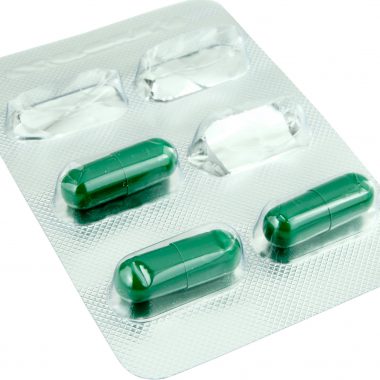GPs should not prescribe antibiotics as first-line treatment for sinusitis, and instead advise patients to rest and relieve symptoms with paracetamol, NICE has said.
NICE said the final guideline, published today, comes as data showed antibiotics were given to 91% of patients visiting their GP with symptoms of sinusitis.
But according to the guidance, only about 2% of cases of acute sinusitis are ‘complicated by bacterial infection’ and most patients will recover in 2-3 weeks ‘without treatment’ regardless of whether the infection is caused by a virus or bacteria.
The guideline, developed with Public Health England, adds that ‘complications of acute sinusitis are rare (about 2.5 to 4.3 per million people per year)’ and that ‘withholding antibiotics is unlikely to lead to complications’.
For patients with symptoms for 10 days or less, the guideline says GPs should ‘not offer an antibiotic prescription’ and give advice about ‘the usual course of sinusitis’, ‘an antibiotic not being needed’, managing symptoms with self care and seeking medical help if symptoms ‘worsen rapidly or significantly’.
For patients with symptoms for more than 10 days, GPs are advised to ‘consider prescribing a high-dose nasal corticosteroid for 14 days for adults and children aged 12 years and over’, but still consider ‘no antibiotic prescription’ or a ‘back-up antibiotic prescription’.
An immediate antibiotic prescription should be offered to patients ‘presenting at any time who are systemically very unwell, have symptoms and signs of a more serious illness or condition, or are at high risk of complications’.
They should be referred to hospital if their acute sinusitis symptoms are associated with a severe systemic infection; intraorbital or periorbital complications; or intracranial complications.
Professor Gillian Leng, deputy chief executive at NICE said: ‘Antibiotic resistance is one of the greatest dangers to our health, which is why we must all work together to fight it.
‘Our new guidance will help healthcare professionals to use antibiotics efficiently and only when they are really needed. This will help to protect these vital medicines and ensure that no one experiences side-effects from a treatment they do not need.’
Dr Tessa Lewis, GP and chair of the managing common infections guidance committee, said: ‘We know that most people with sinus infections will recover in a couple of weeks without needing any antibiotics, but that doesn’t mean we should be sending them home without any information or advice.
‘Health professionals can help their patients cope with this infection and the sometimes unpleasant symptoms it can cause. They should tell them that they’ll probably be feeling this way for a while, and that unless they are very unwell, the best thing to do is to take paracetamol and take it easy.’
Pulse October survey
Take our July 2025 survey to potentially win £1.000 worth of tokens














